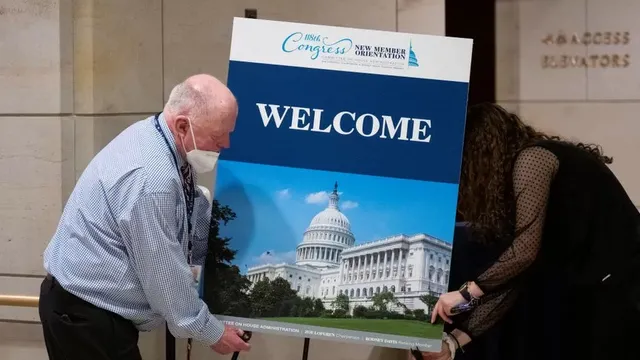Almost multi week after electors cast voting forms in the US midterm decisions, the competition to control the lower office of Congress stays tight.
Conservatives should succeed something like 218 seats to retake a larger part in the Place of Delegates, a possibility that has pointedly restricted.
The party has at present won 214 seats while leftists have won 210, as per race projections from CBS News.
Liberals in the interim held control of the Senate, Congress' upper chamber.
The Biden organization had expected that a deficiency of force in Congress would stop the president's plan.
Assuming the two gatherings split control of Washington, liberals will "keep up with our positions" however citizens shouldn't "anticipate a lot of anything", President Biden said on Monday.
Addressing columnists in Indonesia, where he is going to the G-20 culmination, Mr Biden said the outcomes had "sent an exceptionally impressive message all over the planet that the US is prepared to play" and needs to remain "completely participated on the planet".
Conservative displeasure regarding midterm political decision downfalls
How Majority rule Senate affects Biden and Trump
He noted there was "major areas of strength for a" of political race denialism, political viciousness and citizen terrorizing. In any case, that's what he cautioned, without a larger part in the House, leftists would not be able to systematize early termination freedoms through regulation, a vital need for liberal electors.
Out of the 11 House races that actually still need to be called, most are in western and southwestern states, including California and Arizona.
The last option's race for lead representative is likewise a genuine cliffhanger, with Conservative Kari Lake - a central defender of bogus cases that the 2020 political decision was taken from Donald Trump - following Liberal Katie Hobbs.
A misfortune for Ms Lake would see her join the positions of pre-famous Trump-upheld political decision deniers who lost the week before. Yet, a BBC News count of results found no less than 125 political decision deniers have come out on top in races for the House, Senate and governorships.
